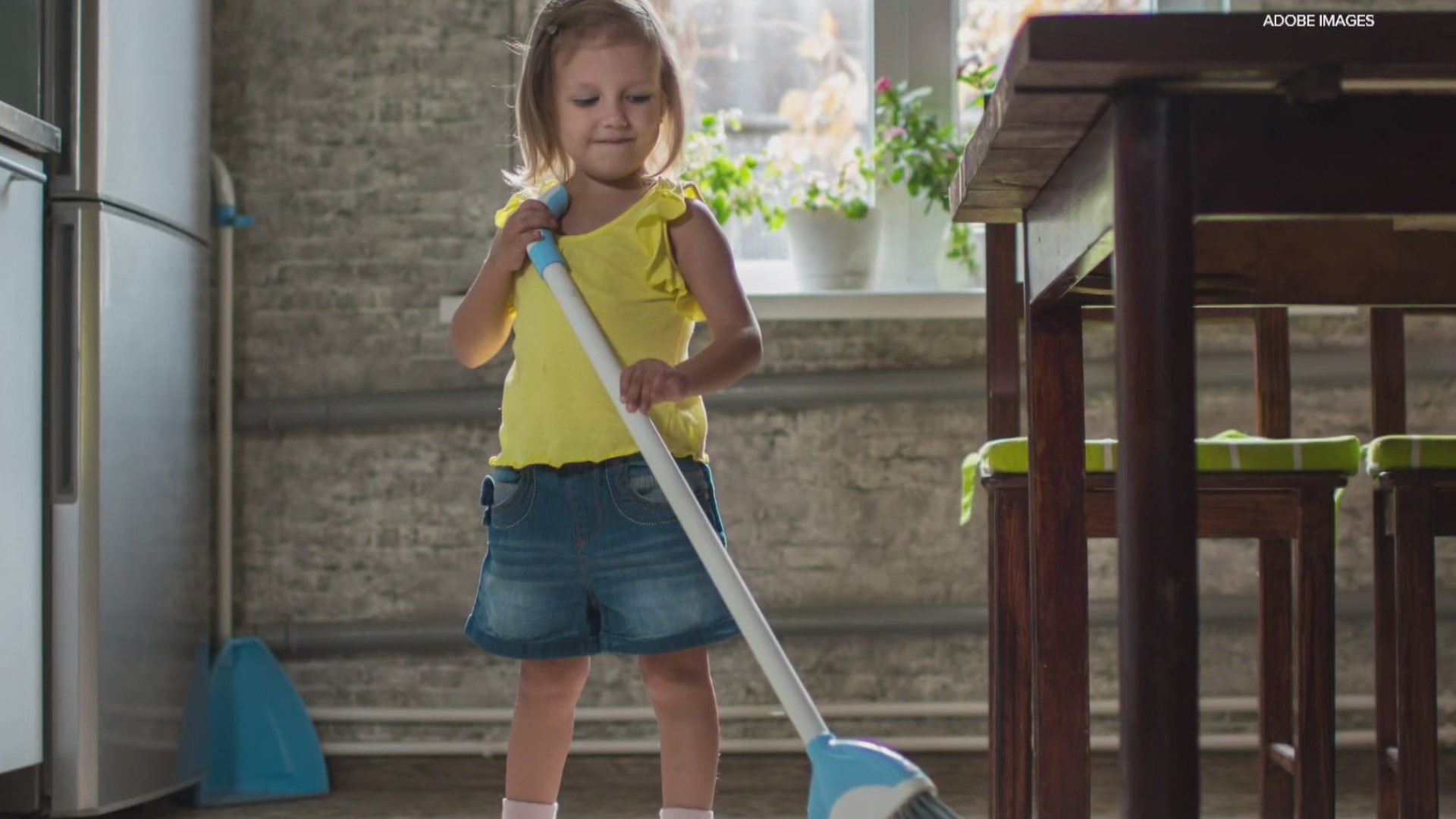GREENWOOD, Ind. — This Sunday on 13Sunrise, Education Expert Jennifer Brinker talked about allowances, including when it's best to start paying an allowance for children and how to make the practice educational. It can start with paying them to complete simple chores around the house.
Dustin Grove: What are the benefits of assigning chores to your kids?
Mrs. Brinker: In addition to it just being helpful to maintain your house, chores give kids some important and foundational life-skills. They are going to have to do laundry, cook, and clean their own place someday, so why not start now? Additionally, having kids do chores teaches them responsibility, teaches teamwork, reinforces respect, and I would argue this last reason is the most important - chores give kids a feeling of purpose that they are contributing to the household. Dustin, I’m sure you remember having jobs in your classroom as a kid, whether you were getting new erasers, washing the chalkboard, or passing out papers. That was all very intentionally done by your teacher to help create good citizens who could also feel pretty great about contributing to the room.
Dustin Grove: How early would be too early to start?
Mrs. Brinker: I would say as soon as possible. You can have your kids start off cleaning up their toys and picking up with you from the time they are very little. They are more capable than you think. It doesn’t have to be some elaborate system with chore charts and stickers and an allowance, but small things like expecting kids to clean off their own place at the dinner table or helping to match socks while you are folding laundry get kids in the habit of contributing to finish a task together and, most importantly, it teaches personal accountability.
Dustin Grove: Are there major pitfalls or common mistakes?
Mrs. Brinker: In addition to just doing it yourself because it is easier or more likely to be done to your standards, some parents will be very stingy with praise. You need to get that praise going right away when your child is working. Don’t wait until the task is complete or pick it apart. You want to build positive momentum as kids are working to keep them engaged and feeling good about the fact they are helping.
Dustin Grove: And how do you make it educational?
Mrs. Brinker: Absolutely get creative! You can teach about fractions and measurement while cooking a meal together. Have little kids sort colors in the laundry. Sorting is a very important skill for little kids to have. Have older kids help with paying bills and explain the financial side of how to budget. Kids can pick up sticks in the yard and practice counting. Learning opportunities are always there if we look hard enough.
Dustin Grove: Should parents pay their kids an allowance to do chores?
Mrs. Brinker: There are mixed reviews on this and, to be honest, this is a very personal decision for your family. So I’ll give you the biggest pro and biggest con. The biggest pro to an allowance is that it teaches kids about finances, responsibility for financial decisions, and the relationship between hard work and earning money. The biggest con would be that giving your child money for chores undermines the importance of contributing to the family. Your child could get the idea in their head that duties always deserve a reward when, actually, sometimes we just have to do our fair share for the family.

